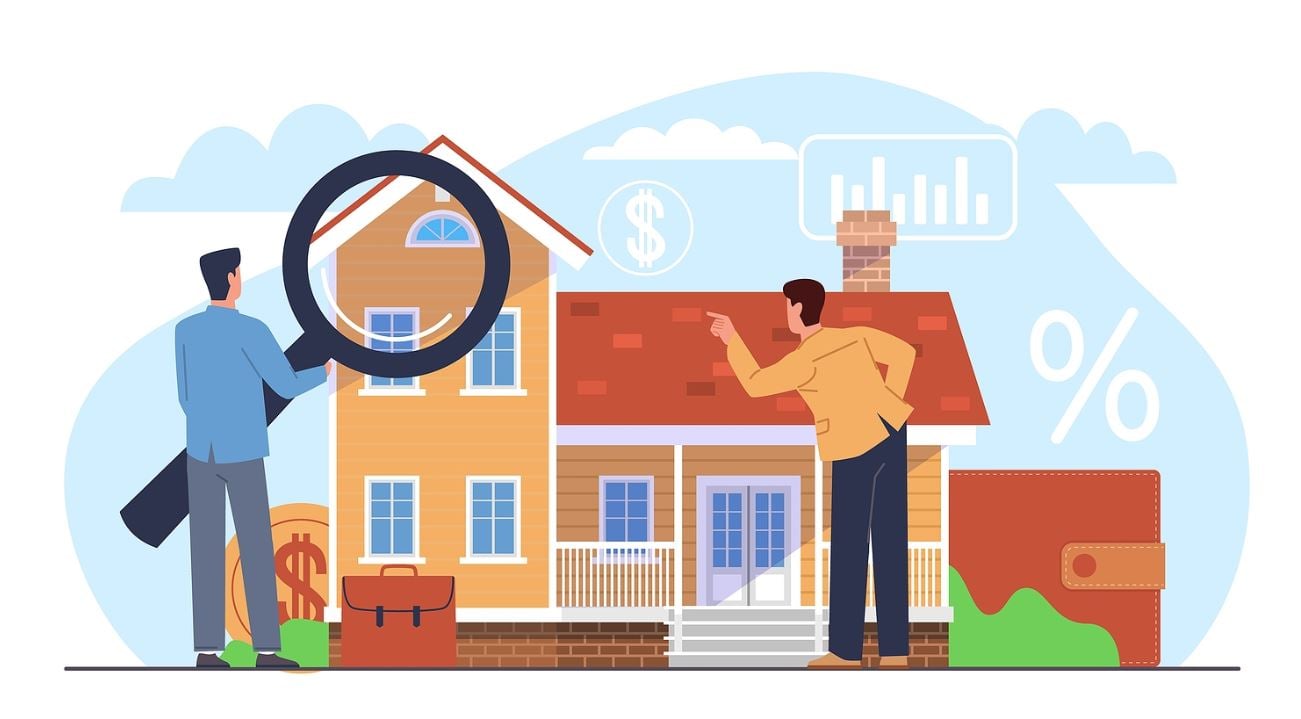
If you’re considering buying a home in Portland, Maine, you’re not alone and are definitely in for something special. Portland is a vibrant coastal city that perfectly blends historic New England charm with modern culture and creativity. From its bustling Old Port district to peaceful, tree-lined neighborhoods, this city offers a little something for everyone, whether you’re a foodie, a nature lover, or simply looking for a welcoming community by the sea.
But before you dive into house hunting, it’s essential to understand that Portland’s real estate market has its rhythm, quirks, and competitive edge. From unique housing stock to seasonal shifts in inventory, being well-informed can make the difference between a smooth home-buying journey and a stressful experience.
In this article, we’ll break down the top 5 things to know before buying a house in Portland ME, and what to check before buying a house in Maine, from understanding the local market to choosing the right neighborhood. Let’s help you feel confident and ready to make one of life’s most significant decisions in one of New England’s most desirable cities.
Understand the Portland Housing Market
As a first time home buyer Portland Maine, it’s important to get a clear picture of the current housing landscape in Portland. Like many parts of the country, Portland has seen increased demand and limited inventory in recent years, making it a competitive market for buyers.
As of early 2025, the median home price in Portland hovers around the mid-to-high $500,000s, with some neighborhoods, like the West End and Munjoy Hill—reaching well above that. Inventory remains relatively low, and homes that are well-priced and move-in ready often receive multiple offers within days. A home’s average time on the market is short, especially during peak buying seasons.
Speaking of seasons, timing matters in Maine. The spring and summer months typically bring the most listings and buyer activity, but they also come with the most competition. Fall can offer a sweet spot—fewer buyers, slightly more negotiating power, and sellers motivated to close before winter sets in.
If you’re serious about buying, the best tip is to come prepared and know the cost of buying a house in Portland ME. That means getting pre-approved for a mortgage early and having a trusted local agent. In a fast-moving market like Portland’s, being ready to act quickly can make all the difference between landing your dream home—or missing out on it entirely.
Know your Neighborhoods
One of the best things about Portland is its diverse mix of neighborhoods, each with its personality, pace, and perks. Whether you’re looking for coastal views, a close-knit community, or easy access to downtown, a corner of the city fits just right. Here’s a quick guide to some of the best neighborhoods in Portland Maine to buy a home.
1. Munjoy Hill
Perched on the peninsula’s eastern edge, Munjoy Hill is known for its stunning views of Casco Bay, historic charm, and walkability. It’s a favorite for buyers who want to be close to the Eastern Promenade, parks, and local cafes. Homes here range from renovated multi-units to stylish condos and updated townhouses. It’s hip, vibrant, and ideal for those who love being in the heart of it all.
2. West End
The West End is for you if you’re drawn to quiet, tree-lined streets and gorgeous historic architecture. This area boasts some of Portland’s most beautiful Victorian and brick townhomes, and it’s just a short walk to downtown. It’s a little more low-key than the East Side, with a strong sense of community and proximity to Maine Medical Center, making it popular with professionals and families.
3. East End / Bayside
These adjacent areas are seeing a wave of growth and development. The East End blends traditional Portland with a newer, creative edge, while Bayside is transforming rapidly with new condos, breweries, co-working spaces, and restaurants. This could be your spot if you’re looking for a more modern living option close to downtown with room for growth.
4. Deering Center / North Deering
Looking for a more residential, suburban vibe while staying within city limits? Deering Center and North Deering offer quieter streets, single-family homes, good schools, and easy access to outdoor recreation. These areas are attractive to families, retirees, and those wanting a bit more space without giving up the convenience of city life.
Budget for Additional Costs
When buying a home in Portland Maine, it’s essential to consider expenses beyond the listing price. These additional costs can significantly impact your overall budget, from property taxes to heating bills and insurance premiums. Here’s a breakdown of key financial factors to keep in mind:
1. Property Taxes: Comparing Portland to Surrounding Towns
Portland’s property tax rate is $15.01 per $1,000 assessed value. This rate is higher than some neighboring towns, such as Scarborough ($10.93) and South Portland ($13.20), but lower than others like Raymond ($17.20). A home assessed at $500,000 in Portland translates to an annual property tax of approximately $7,505.
2. Utility Costs and Winter Heating Expenses
Maine’s cold winters can lead to substantial heating expenses. Maine’s average monthly gas bill is $148.42, the highest in the U.S., primarily due to the state’s colder climate and reliance on heating. Heating costs vary depending on the fuel source:
- Heating Oil: Approximately $24.44 per million BTUs.
- Propane: Around $34.05 per million BTUs.
- Natural Gas: Between $10.38 and $25.14 per million BTUs.
These costs can add up quickly during winter, so factoring them into your budget is important.
3. Homeowner’s Insurance and Flood Zones
Homeowner’s insurance premiums in Maine have increased by an average of 15% in recent years, driven by rising sea levels, intensifying coastal storms, and rising construction costs. Homes located near the coast or designated flood zones may require additional flood insurance, costing around $1,133 annually in Maine. It’s crucial to assess whether the property you’re considering falls within a flood zone and to budget accordingly for insurance premiums.
4. Inspection and Closing Costs
Closing costs for buyers in Maine typically range from 2% to 5% of the home’s purchase price. A $500,000 home equates to $10,000 to $25,000. These costs may include:
- Home Inspection: Approximately $475 in Portland.
- Appraisal Fee: $500–$600.
- Credit Report Fee: $35–$50.
- Flood Certificate: $15–$20.
- Title Services: $550–$650.
- Title Insurance: $400–$550 for the lender’s policy and $400–$500 for the owner’s policy.
Being aware of these additional expenses ensures you’re financially prepared for the full cost of purchasing a home in Portland.
Understand Maine’s Unique Home Styles and Conditions
When buying a home in Portland, you’re not just purchasing a property—you’re stepping into a piece of New England history and engaging the Portland ME real estate. The city’s housing stock is rich, with various architectural styles that reflect its heritage and evolution. But with charm often comes age, and that means it’s important to understand the unique features—and potential pitfalls—of Maine homes.
1. Common Styles in Portland
Portland’s neighborhoods are dotted with:
- New Englanders – Tall, narrow homes with simple lines and steep roofs, often built in the early 1900s.
- Colonials – Symmetrical, two-story homes with classic curb appeal and a timeless feel.
- Victorians – Full of ornate detail, turrets, bay windows, and colorful facades—these homes are beautiful but can come with higher maintenance.
- Condos and Multi-Families – Especially common closer to downtown and the peninsula, offering lower-maintenance living or potential rental income.
Each style has perks and considerations, so knowing what suits your lifestyle (and your renovation tolerance) is key.
2. The Importance of Thorough Inspections
Many of Portland’s homes are over 100 years old, so a detailed home inspection is critical. Older homes may have outdated wiring, aging plumbing, or structural issues that aren’t immediately visible. Roofs, foundations, and basements (which can be prone to moisture) should be carefully evaluated.
3. Lead Paint and Radon Testing
In homes built before 1978, lead-based paint is a real concern, especially if you have children. Maine law requires proper disclosure, and many buyers opt for lead testing during inspections.
Radon is another regional issue to be aware of. This naturally occurring gas can seep into basements and cause health risks over time. Radon testing is affordable and commonly included in Maine home inspections, and mitigation systems are often simple to install.
4. Heating Systems: What to Expect
Heating is a major consideration in Maine, where winters are long and cold. Homes in Portland may use:
- Oil – Common in older homes, typically with large storage tanks in the basement.
- Natural Gas – More efficient and increasingly popular in newer or updated properties.
- Heat Pumps – Gaining traction for their energy efficiency and ability to provide heating and cooling.
Understanding what type of system a home has—and its age and efficiency—can help you estimate ongoing utility costs and determine whether upgrades are needed.
In short, the homes for sale in Portland Maine offer incredible character but require careful evaluation. Partnering with an experienced local agent and qualified inspector can help you navigate these details and find a home that’s as smart as it is beautiful.

Work with a Local Real Estate Expert
Buying a home in Portland, ME, isn’t just about liking a kitchen layout or picking the right street—it’s about confidently navigating a competitive, ever-changing market. That’s where working with a trusted local real estate expert becomes invaluable.
Portland’s housing market has nuances—from the speed at which homes sell to the variety of property types and neighborhood dynamics. A local agent knows the rhythms of this market, including when to act fast, where to look for hidden gems, and how to put together an offer that stands out in a multiple-offer situation.
Beyond listings you’ll find online, experienced local agents often have access to off-market opportunities, strong relationships with other agents, and insight into up-and-coming areas that may not be on your radar yet. They’re also well-versed in zoning laws, building restrictions, flood zone regulations, and other local factors that could influence your purchase.
Conclusion
Buying a home in the region is an exciting journey. But being prepared on how to buy a house in Portland ME is key to making the process smooth and successful. To recap, here are the top five things that most Portland Maine home buying guides suggest to keep in mind:
- Understand the Portland housing market and how timing and pricing trends affect your search.
- Explore the neighborhoods to find the one that best fits your lifestyle and needs.
- Budget for additional costs like property taxes, heating, insurance, and closing expenses.
- Familiarize yourself with Maine’s home styles and conditions, including older home quirks and local inspection requirements.
- Work with a local expert who knows the market inside and out and can help you find the perfect place to call home.
With its coastal charm, cultural energy, and close-knit community feel, Portland is a truly special place to live. And with the proper guidance and preparation, you can make a smart, confident move in this competitive market.
Whether you’re just starting to explore or ready to dive in, Katie Thibodeau is here to help. Reach out for a personalized consultation, sign up for local market updates, or browse current listings—we’d love to help you find your way home in Portland.


